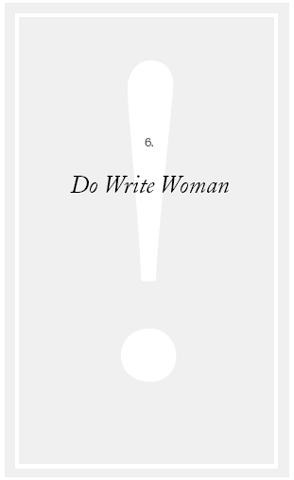
A woman I respect a great deal, an editor in the newsroom where I work, scowled as I approached her one day. She pointed to a group of male editors huddled near the city desk.
“I’m trying to figure out why I’m not included in that meeting,” she said.
I placed my hand on her shoulder and said as gently as I could, “I’m trying to figure out why you’re waiting for the invitation.”
If women always waited to be beckoned, we still wouldn’t have the right to vote. Standing by hoping that someone else will recognize what we have to offer is a great way to end up an anonymous quote in someone else’s life story.
When I give speeches, and the audience is full of women, I almost always ask for a question-and-answer period so that I can hear what’s on their minds. So often, the conversation turns to the issue of power—who has it, who doesn’t, and why are women always on the low end of the equation? Typically, the woman who asks this sort of question starts out tentative, but her voice grows in strength and timber as she notices the swell of camaraderie around her. You can feel it in the room. There’s that telltale buzz, the nodding of heads as women lean over to whisper into sympathetic ears. At such moments, I am both humbled and inspired by the force of their collective intellect and their stubborn refusal to accept the status quo.
Many of the columns in this section are narratives of a few women’s stories that illustrate how politics affects all women’s lives. Some columns are meant to celebrate the female gender for all its strengths and silliness. And, sometimes, I just have a little fun poking the bear.
I’m paid to give my opinion, and so it’s easier for me to speak out. It’s also easy to find me if you don’t like what I have to say, and women often ask if the vitriol of some readers ever gets to me.
I tell them the truth: Of course, it bothers me.
I just don’t let it stop me.
And those women are the reason why.